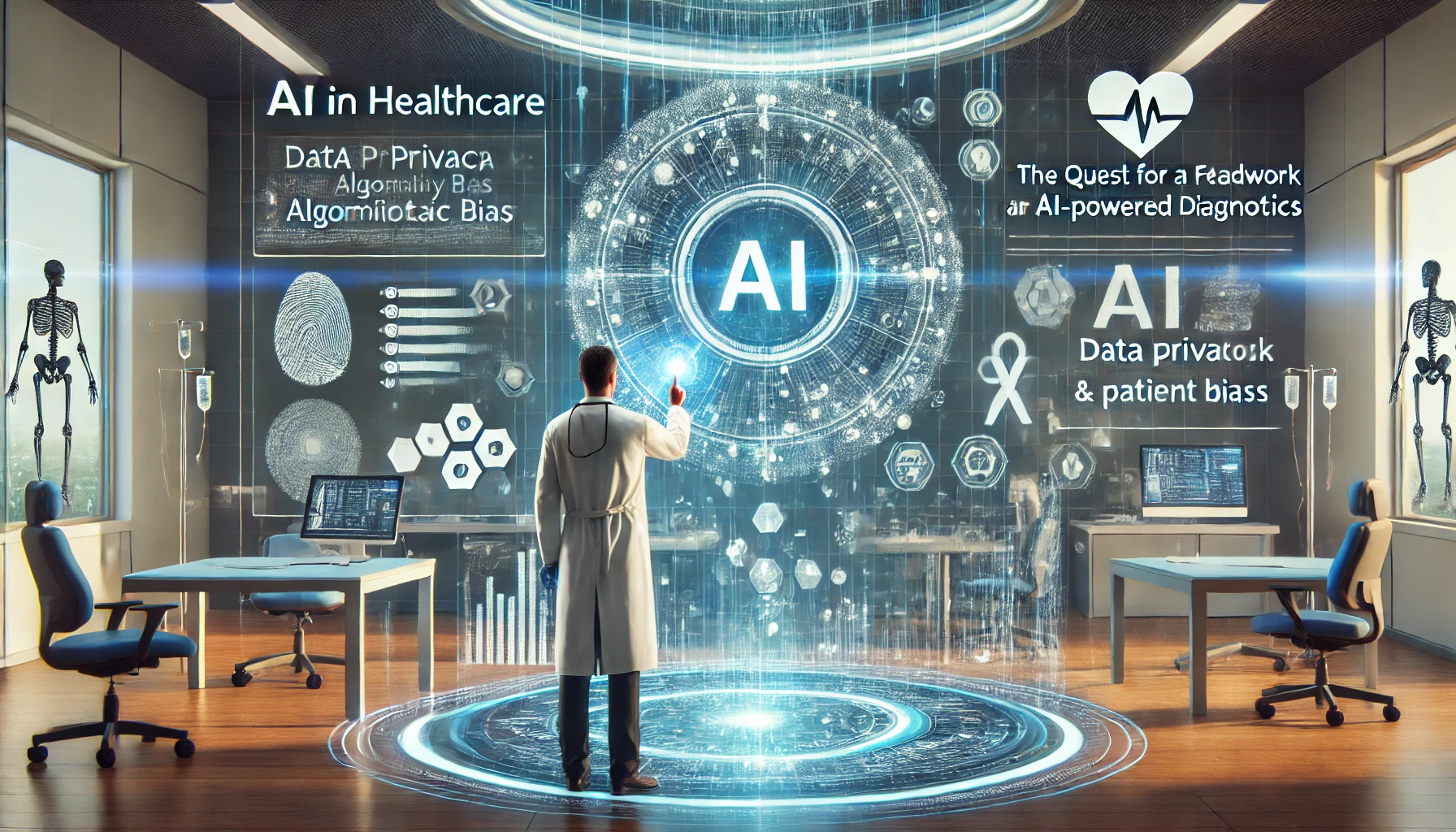AI in Healthcare: The Quest for an Ethical Framework for AI-Powered Diagnostics

Introduction
Artificial Intelligence (AI) is no longer the stuff of science fiction—it's diagnosing diseases, predicting patient outcomes, and even suggesting treatment plans. But as AI becomes the new stethoscope of modern medicine, the U.S. is grappling with how to regulate this digital doctor. Discussions are heating up around proposed regulations targeting AI in healthcare diagnostics, aiming to address data privacy, algorithmic bias, and patient rights. So, what's the prognosis? Let's dive into how these regulatory moves could reshape health tech innovation while keeping our ethical vitals in check.
Data Privacy: Keeping Patient Information on the DL (Data Lockdown)
Data is the lifeblood of AI algorithms, especially in healthcare where patient data fuels diagnostic models. However, with great data comes great responsibility. According to a 2022 report by the Ponemon Institute, healthcare data breaches cost an average of $10.10 million per incident—a 29.5% increase from 2020. The proposed regulations emphasize stringent data encryption and anonymization protocols. This isn't just about locking the medicine cabinet; it's about ensuring that AI systems can't reverse-engineer patient identities from datasets. By enforcing robust data governance, the regulations aim to build public trust, which is currently as shaky as a rookie surgeon's first incision.
Algorithmic Bias: When AI Needs a Second Opinion
AI algorithms are only as good as the data they're trained on. Unfortunately, if that data is biased, the AI's diagnoses can be as discriminatory as a 19th-century textbook. A study published in Science in 2019 found that an algorithm widely used in U.S. hospitals exhibited racial bias, affecting millions of patients. The new regulatory framework proposes mandatory bias testing and fairness audits for AI diagnostic tools. Think of it as a regular check-up but for algorithms. By requiring developers to identify and mitigate biases, the regulations aim to ensure that AI becomes an equal-opportunity diagnostician.
Patient Rights: Empowering the 'I' in AI
Patients often have no idea that an AI had a hand (or code) in their diagnosis. The proposed regulations advocate for transparency, giving patients the right to know when AI is used in their care. Moreover, they grant patients the ability to contest AI-driven decisions, much like seeking a second opinion from a human doctor. A survey by Accenture in 2021 revealed that 41% of patients are uncomfortable with AI being involved in their healthcare decisions without their knowledge. By putting patients in the driver's seat, the regulations aim to make AI a co-pilot rather than an autopilot in healthcare.
Impact on Health Tech Innovation: Regulatory Roadblock or Launchpad?
Now, you might be thinking, 'Won't all these regulations stifle innovation faster than outdated software?' It's a valid concern. However, regulations could actually serve as a catalyst for more robust and trustworthy AI solutions. By setting clear guidelines, they reduce the legal gray areas that make investors as nervous as a cat in a room full of rocking chairs. According to a report by Frost & Sullivan, the AI healthcare market is expected to reach $45.2 billion by 2026, and clear regulations could accelerate this growth by attracting more investment and fostering consumer trust.
Conclusion
As AI continues to weave itself into the fabric of healthcare, the need for an ethical framework becomes as crucial as a heartbeat. The proposed U.S. regulations aim to address the triad of data privacy, algorithmic bias, and patient rights. While they present challenges, they also offer opportunities to enhance innovation and trust in AI-powered diagnostics. So, will these regulations be the remedy that healthcare AI needs, or will they introduce side effects we haven't anticipated? Only time will tell, but one thing's for sure: the conversation is just getting started. What's your take on prescribing regulations for AI in healthcare? Join the discussion and let's diagnose this issue together.



